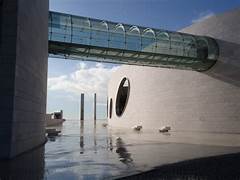Health Care in Portugal
- Winnie Graybard

- Jun 10, 2024
- 3 min read
This blog was designed to share our experiences as expats in Portugal. It turns out that health care became a significant part of that story.
Portugal has a public health care system, Servico Nacional de Saude (SNS), that is available to all legal residents. Once we received our temporary residency status, we were entitled to full, universal health care. The SNS administered COVID vaccinations, so that is where we received our jabs. A requirement of obtaining our visa (and temporary residency) was that we had to carry private health insurance. Many doctors work in both the public and private sectors. The quality and cost of health care services in Portugal is excellent. It was rated 19th in the world in 2023. The United States ranked 38th.
Upon our arrival, we took recommendations for an internal medicine doctor from a Facebook group for expats living in Cascais. We were both extremely pleased with Dr. Annette Koch who worked at the CUF Clinic in Cascais. It was easy to make an appointment online and we usually saw here within 48 hours. Prescriptions, filled at local pharmacies, were extremely cost effective -- much less than in the US.
In 2021, Will experienced sciatica and was in a lot of pain. Dr. Koch referred him to an orthopedic doctor who prescribed an MRI. That led to a course of ten physical therapy sessions that were very successful. The cost of the MRI was 25 euros (about $30). The course of PT cost another 25 euros. In 2022, sciatica on the other side sent him back into the MRI and he had two courses of PT, which worked like a charm. Total cost to us was less than $100. After that, whenever he got bored or cranky, I would suggest that he head over to CUF for an MRI. It would have been cheaper than going out for beers at the local Irish pub.
Once Will was going through the diagnostic and testing process for his lung cancer with CUF, we felt confident that he was getting quality, state-of-the-art tests. We were, however, a bit frustrated by not understanding the process that we needed to follow. He was sent to different CUF hospitals depending on the test. Once we finally got an email address for one oncologist, we were sent to another one. However, I want to emphasize that we never questioned the quality of care. It was the process that was baffling.
In early April, we learned of a world-renowned cancer clinic in Lisbon called the Champalimaud Centre for the Unkown. It was created in 2008 with a 500 million euro donation from Antonio Champalimaud, a successful industrialist and financier, dedicated part of his legacy to building a world-class project in the field of biomedicine. It is comprised of multi-disciplinary units dedicated to the various forms of cancer. Upon our return from our river cruise in April, we went about changing over from the CUF medical team to Champalimaud. After completing a stressful and frustrating process of gathering all Will's test results and other records, we met with Dr. Marcos Pantarotta. For those who are interested, I recommend Googling both Champalimaud Foundation and Dr. Pantarotta.
The Champalimaud Center is located in Belem, which is just ourside of Lisbon. It was about a 35 minute drive from our home in Cascais. The center is amazing. The architecture is impressive and everyone on the staff was welcoming and extremely helpful. One small indication was that as soon as you park your car in their garage, an employee in a golf cart pulls up to your car and takes you to the entrance.
We were fortunate to have been able to work with Dr. Pantarotta even briefly. He was candid with us and gave us his cell number and always replied quickly to our questions and concerns.
One final note: Our private health care insurance coverage was excellent. The final out of pocket cost, including all of the scans, three weeks of hospitalization, various procedures in the hospital, and my six nights of overnight stays in Will's room (including meals), was less than $1000. I couldn't have asked for better care.










Comments